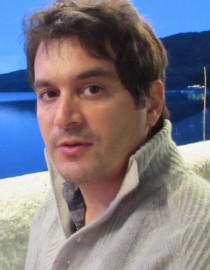 |
Fabien Gatti
Fabien Gatti is a Research Professor at the University of Burgundy.
His main interest is the simulation of high dimensional quantum
dynamics mainly with MCTDH. In this framework, he is an expert of
the description of large amplitude motions in molecular processes.
Homepage:
http://www.ismo.u-psud.fr/spip.php?rubrique413
Contact: fabien.gatti[at]u-bourgogne.fr
|
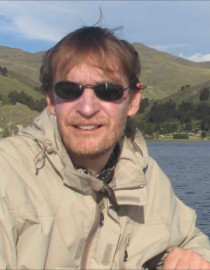 |
David Lauvergnat
David Lauvergnat is a Research Professor at the University of Paris-Saclay.
His main interest is the development of numerical tools for quantum dynamics simulations.
In particular, he is developing sparse grid schemes and he is the main developer of the
Tnum-Tana code, which deals with curvilinear coordinates and the associated kinetic energy operators.
Contact: david.lauvergnat[at]universite-paris-saclay.fr
|
 |
David Mendive-Tapia
David Mendive-Tapia is a postdoctoral research associate in the Theoretical
Chemistry Group at Heidelberg University. His main research interests are the
study of photochemical chemical reactivity through the mapping of potential
energy surfaces (e.g. TD-DFT, ADC and CAS-SCF methods), high dimensional
quantum dynamics and the use of machine learning and pattern recognition
techniques within the context of the Multi-Layer MCTDH framework.
Homepage:
https://www.pci.uni-heidelberg.de/tc/index.html
Contact: david.mendive-tapia[at]pci.uni-heidelberg.de
|
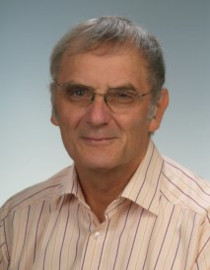 |
Hans-Dieter Meyer
Hans-Dieter Meyer is a retired professor for Theoretical Chemistry at
Heidelberg University and is one of the inventors of MCTDH.
His interests include classical analogs for treating electronic
transitions (mapping), classical chaos and statistical distributions
of quantum levels, complex absorbing potentials (CAP), and the development and
application of MCTDH. Over the last decades his focus
turned more and more towards MCTDH. He also maintains the
Heidelberg MCTDH software package.
Homepage:
https://www.pci.uni-heidelberg.de/tc/dieter.html
Contact: hans-dieter.meyer[at]pci.uni-heidelberg.de
|
 |
Markus Schröder
Markus Schröder is a staff scientist in the Theoretical Chemistry Group at Heidelberg University.
His main research
interests are the description of large amplitude motions and proton transfer in floppy molecules.
Within the MCTDH framework he is interested in compact operator representations as well as
refitting of high-dimensional potential energy surfaces into a sum-of-products form.
Homepage:
https://www.pci.uni-heidelberg.de/tc
Contact: markus.schroeder[at]pci.uni-heidelberg.de
|
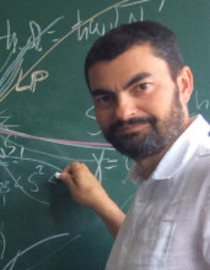 |
Oriol Vendrell
Oriol Vendrell is Professor for Theoretical Chemistry at Heidelberg
University. His research interests include the spectroscopy and structural
dynamics of flexible molecules and clusters, pump-probe spectroscopies and
ultrafast molecular processes, polaritonic chemistry and light-induced
non-adiabatic phenomena, and the application of MCTDH to the electronic
dynamics of molecules.
Homepage:
https://www.pci.uni-heidelberg.de/tc/oriol.html
Contact: oriol.vendrell[at]uni-heidelberg.de
|
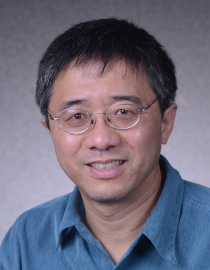 |
Haobin Wang
Haobin Wang is a professor at University of Colorado Denver.
His research focuses on developing the ML-MCTDH method to simulate
quantum dynamics for electron transfer reactions in
the condensed phase.
Homepage:
https://clas.ucdenver.edu/chemistry/research-and-creative-work/showcase-research-projects/haobin-wang
Contact: haobin.wang[at]ucdenver.edu
|
 |
Graham Worth
Graham Worth is a Professor of Computational Chemistry at University College London.
He is a lead developer of the Quantics suite for quantum dynamics, which now includes
the Heidelberg MCTDH package. His main interests are simulating non-adiabatic dynamics
and photo-excited processes. Present development work focuses on generating potential
surfaces on-the-fly using direct dynamics.
Homepage:
https://www.chem.ucl.ac.uk/worthgrp
Contact: g.a.worth[at]ucl.ac.uk
|








